UG Marks Day of Scientific Renaissance of Africa with Call to Climate Action and Innovation
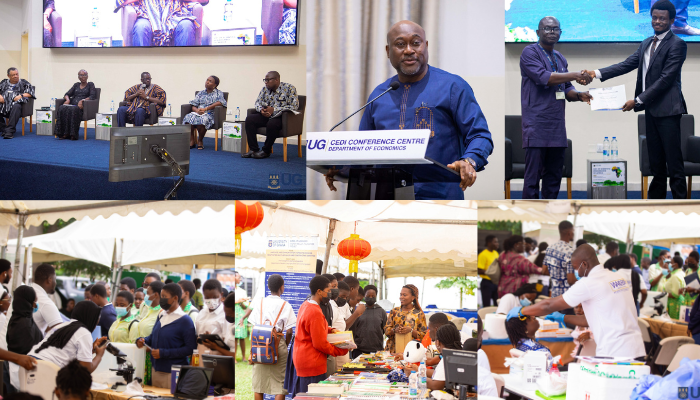
The University of Ghana has held a colourful ceremony to climax this year’s celebration of the Day of Scientific Renaissance of Africa (DSRA), under the theme “Climate Sustainability: Innovate, Safeguard, Prosper.”
The event, put together by the Research and Innovation Directorate under the leadership of Prof. David Dodoo-Arhin and hosted at the Cedi Conference Centre, brought together academics, policymakers, students, industry partners and stakeholders to champion science and innovation as engines of sustainable development across the continent.
The Acting Vice-Chancellor and Pro Vice-Chancellor in charge of Academic and Student Affairs, Prof. Gordon Awandare, who chaired the ceremony, highlighted Africa’s historic contributions to science and technology, stressing the need to nurture young scientific minds and invest in research to secure the continent’s future.
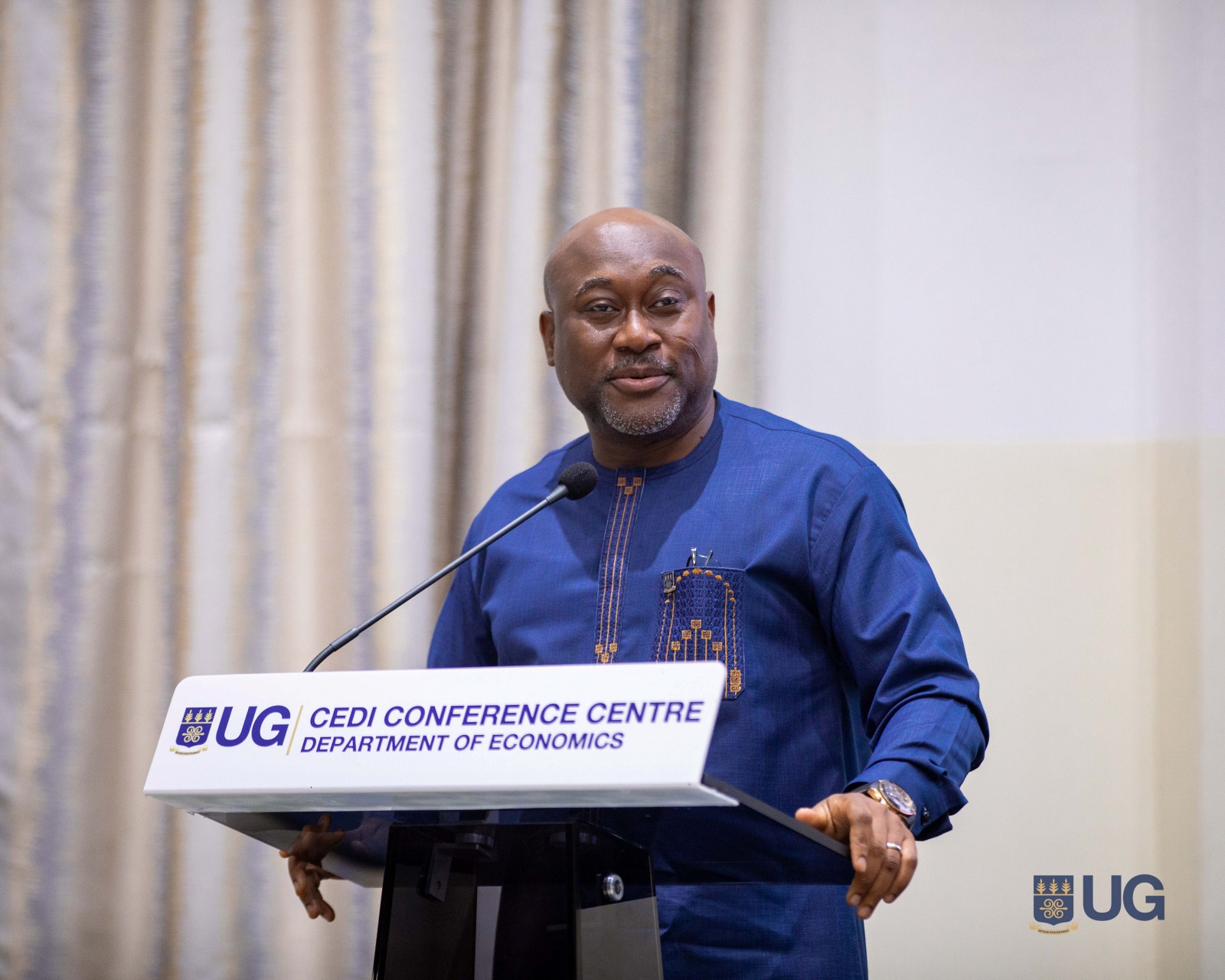
He called for collaboration between universities, industry and governments to tackle climate challenges and position Africa at the forefront of global scientific discourse. “This is not just a celebration but a call to action,” he said, urging stakeholders to co-create solutions that respond to the pressing issues of climate change, food security and sustainable development.
In a keynote address delivered on his behalf, the Special Guest of Honour, Hon. Issifu Seidu, Minister of State for Climate Change and Sustainability, underscored the urgency of leveraging science and intellectual property (IP) to combat climate change.
He outlined Ghana’s rising temperatures, erratic rainfall and sea-level rise, noting the need to scale innovations such as renewable energy, climate-smart agriculture and waste-to-energy initiatives.
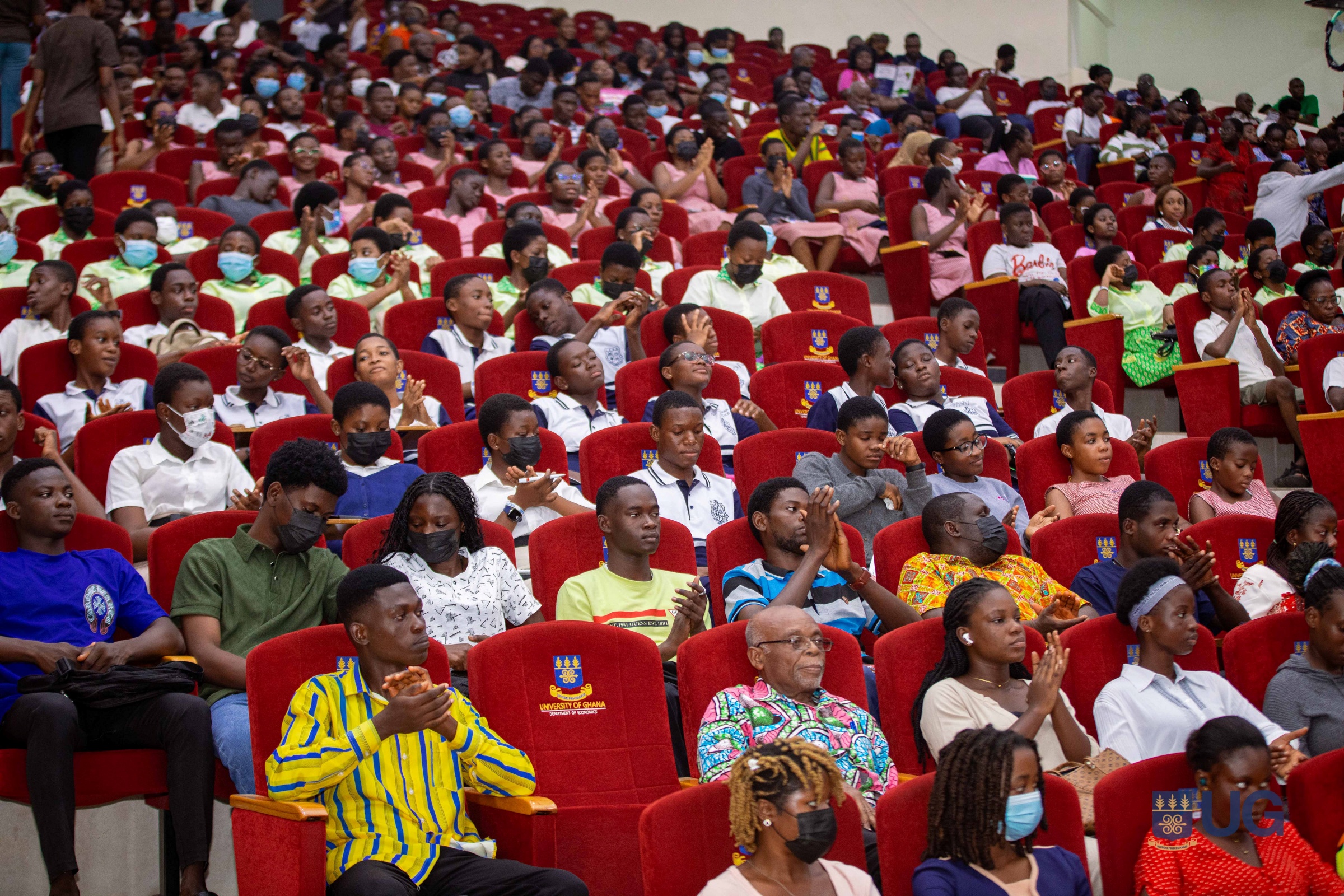
The Minister also called for rethinking IP frameworks to ensure equitable access to climate-resilient technologies, adding, “Our goal is not to monopolise sustainability, but to empower innovation ecosystems where knowledge is shared responsibly.”
In a welcome address, Prof. David Dodoo-Arhin, Director of the Research and Innovation Directorate, stated, “The safeguard component of this year’s theme is particularly significant as the University recognises that intellectual property protection is a cornerstone of sustainable innovation. Through RID, we are building a robust ecosystem that supports the identification, protection, and commercialisation of research outputs.”
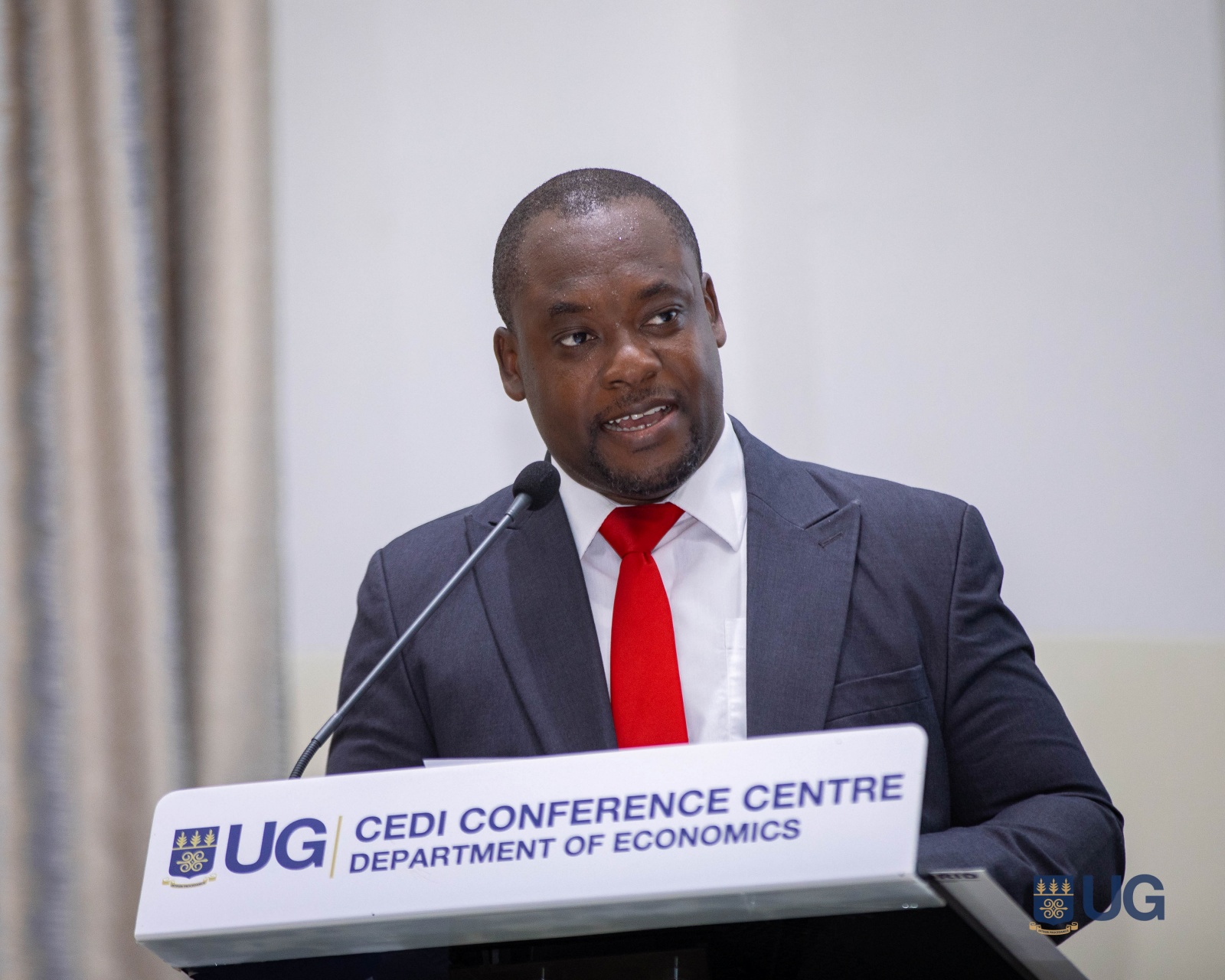
He added, “This year’s DSRA celebration is also a moment of reflection and pride as we prepare to mark 15 years of advancing research excellence and innovation at the University. Since 2022, our themes have sparked dialogue and action across our colleges and communities, culminating in today’s high-level panel and thesis innovation awards.”
The event featured a high-level panel discussion moderated by Prof. Duah Dwomoh, Head of the Department of Biostatistics at the School of Public health, on the theme “Transforming Ideas into Impact: The Role of IP in Climate Sustainability Innovations.” The panel included Prof. Chris Gordon, Founding Director, Institute of Environment and Sanitation Studies (IESS), who emphasised inclusive climate research and biodiversity conservation; Prof. Simon Bawakyillenuo, Institute of Statistical Social and Economic Research (ISSER), who spoke on the socio-economic implications of climate change; Ms. Paulina Addy, Ministry of Food and Agriculture; who shared insights on climate-smart innovations in agri-food systems and Mrs. Diana Owusu Antwi, Senior Research Development Officer, Research and Innovation Directorate, who addressed safeguarding climate innovations through robust IP regimes.
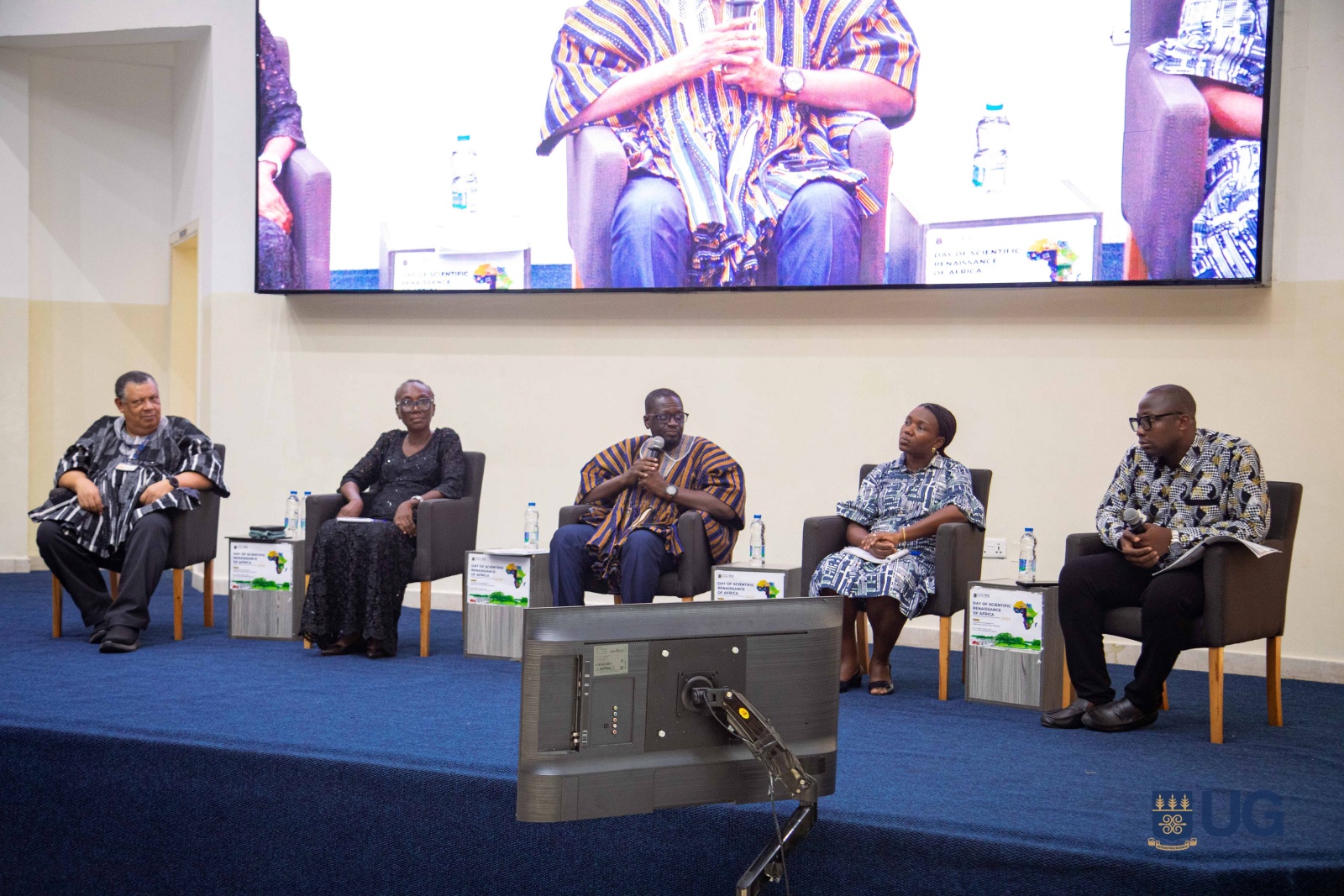
The discussion highlighted the need to bridge the gap between research and practice, strengthen policy frameworks and support communities with home-grown solutions.
As part of the celebration, the University honoured student innovators through the maiden UG-RID Thesis Innovation Awards, instituted by the Research and Innovation Directorate.
Pro Vice-Chancellor with responsibility for Research, Innovation and Development, Prof. Felix Ankomah Asante, who presented awards to three students whose thesis projects demonstrated originality, feasibility and potential impact, encouraged others to invest their time in studies that are innovation-centred.
The winners included Wisdom Mensah (Undergraduate), Peace Semekor Adegbenu (Masters), and Clementine Odei (PhD). Each received a cash prize and ongoing support to develop their business ideas into viable ventures.
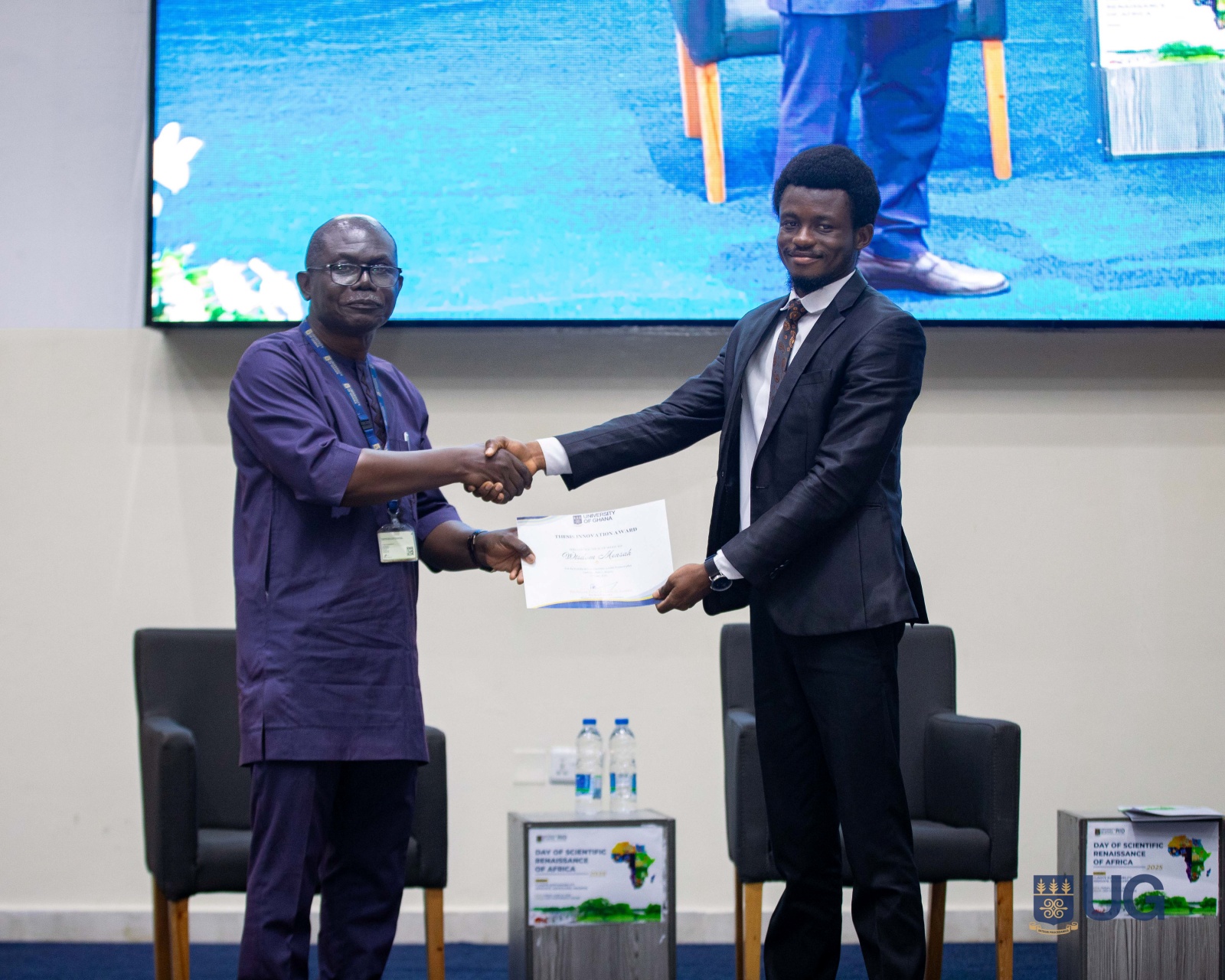
Prior to the climax, the University’s Colleges and their constituent Schools, Institutes, Centres and Departments organised colloquia, medical outreach and community engagement activities throughout the month of June to commemorate the DSRA.
These initiatives sought to raise awareness on the role of science and technology in addressing Africa’s challenges and advancing development goals.
The 2025 DSRA celebration was held in partnership with UG-Nkabom, UG-CCRES (in partnership with Mastercard Foundation) and ISSER. It was sponsored by Tɛkkyerɛma Pa, Centre for Teaching & Learning Innovation (CTLI), the I-Never-Rest Project, Prof. Kwasi Torpey, the West African Genetic Medicine Centre (WAGMC), the Noguchi Memorial Institute for Medical Research (NMIMR), the University of Ghana Business School (UGBS), Prof. Yaw Afrane and other partners.
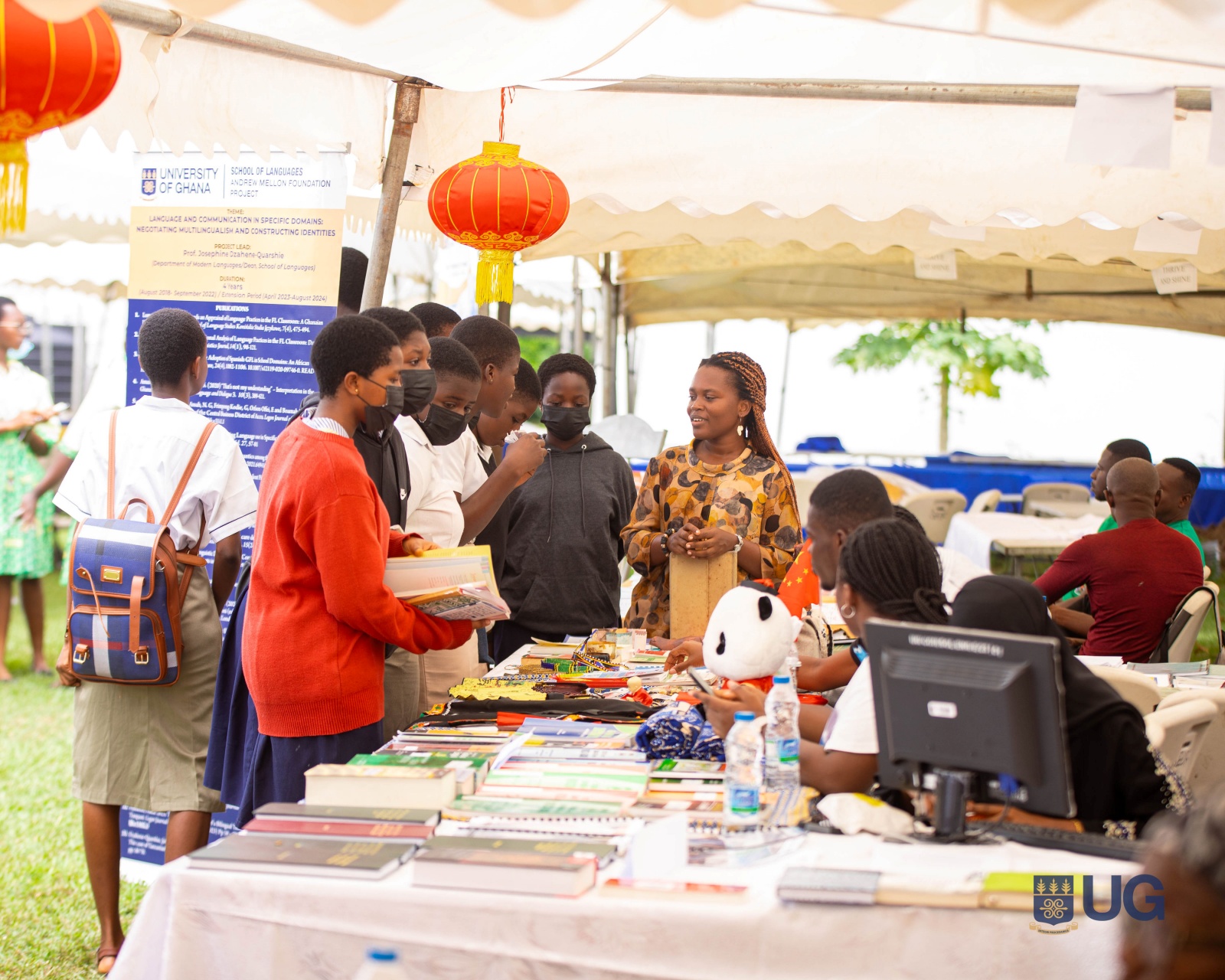
In closing, Prof. Awandare expressed optimism that the celebration would inspire renewed commitment to building a sustainable future through science, innovation and collaboration, saying, “Together, let us usher in a new era of African scientific renaissance.”
The organisation of the celebration was spearheaded by the Planning Committee, which comprised Prof. David Dodoo-Arhin (Director, Research and Innovation Directorate), Prof. Nancy O. Quashie (Deputy Director, Research, RID), Prof. Delali Dovie (UG-CCRES), Dr. Mrs. E Ameyaw-Buronyah (Director, Public Affairs Directorate), Mrs. Mammie Hutchful-Nortey (Senior Research Development Officer, RID), Mr. Jacob Kilbertson Zuttah (Senior Research Development Officer, RID), Mrs. Amma Afumwaa Appah (Research Development Officer, RID), Ms. Mary Twum-Barima (Research Development Officer, RID), Ms. Jennifer Akosua Abdulai (Research Development Officer, RID), Ms. Victoria Anim (Assistant Registrar, Public Affairs), Mr. Yaw Asiedu Danso (Research Development Officer, RID), Ms. Gloria Addae (UG-Nkabom), Mrs. Irene Yeboaa Ashiley (Assistant Registrar, RID) and Ms. Lynda Dzifa Awadzie (Principal Administrative Assistant). Rapporteurs for the programme were Ms. Jane D. Oppong, Mr. Evans Afful-Frimpong, and Mrs. Gloria Obeng-Benefo.